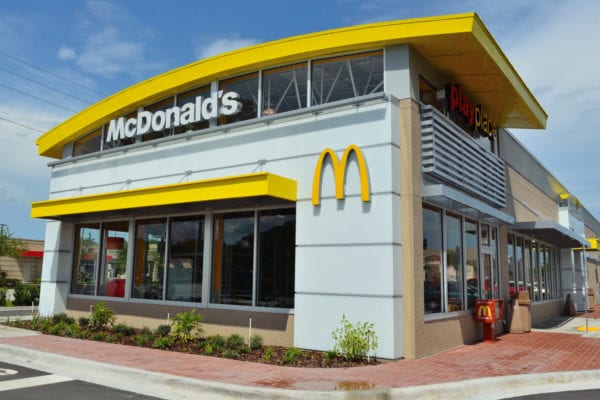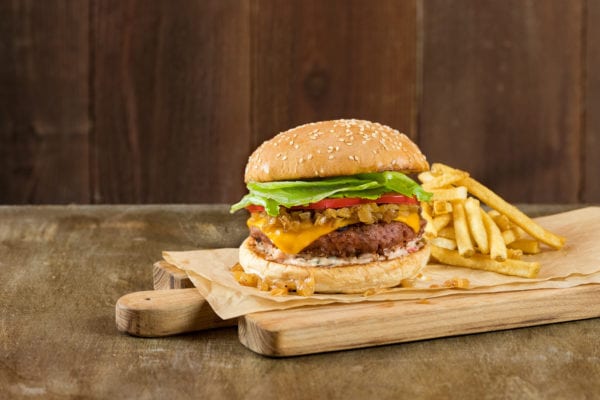Skift Take
When handled properly, fresh food poses no risk to the consumer — but as McDonald's works to improve the quality of its ingredients, it shoulders the challenging task of communicating food safety the whole way through its workforce.
— Kristen Hawley
(Bloomberg) — McDonald’s Corp. Chief Executive Officer Steve Easterbrook is keeping a close watch on food safety as he rolls out fresh beef at the fast-food chain, aiming to avoid problems that continue to roil Chipotle Mexican Grill Inc. almost two years after an E. coli crisis.
“The absolute No. 1 priority for us is food safety,” Easterbrook said in an interview with Erik Schatzker on Bloomberg Television Wednesday. “We never take that for granted.”
After a successful round of testing, McDonald’s announced plans in March to roll out fresh beef in its quarter-pound burgers at the majority of U.S. restaurants by next year. The shift means swapping out frozen patties and dealing with something that’s different to source, transport, store and cook, Easterbrook said.
Though the switch won’t apply to all of McDonald’s burgers, it represents a key new challenge for the six-decade-old restaurant chain. Fresh beef requires more careful handling than frozen patties, and Chipotle’s woes have brought more intense attention to food safety.
Chipotle, which was backed by McDonald’s before its initial public offering in 2006, suffered a norovirus outbreak at a restaurant in Virginia this month. More than 135 customers were sickened, and the incident battered the stock last week. It also brought back memories of Chipotle’s multiple foodborne-illness outbreaks in 2015.
Food Cleanup
Fresh beef is one of several initiatives aimed at improving McDonald’s culinary reputation. The company removed artificial preservatives from Chicken McNuggets last year and stopped using high-fructose corn syrup in its sandwich buns. It also plans to switch to cage-free eggs by 2025.
Easterbrook said the company is participating in a global effort to define “sustainable” beef to help improve agricultural practices. And he didn’t rule out grass-fed or organic beef showing up on the company’s menu at some point in the future.
“You’re always limited to a certain degree by the existing agriculture standards and practices,” he said. “We can have an influence, but that doesn’t necessarily mean the supply is there.”
The shift away from frozen beef may put more pressure on sanitation. Easterbrook warned last year that contamination was a potential risk.
Wendy’s Co. has spent decades offering fresh burgers, but not at the scale of McDonald’s 14,000 U.S. restaurants.
“Our job is to solve the operational challenges, but deliver what the customer is asking for,” Easterbrook said.
©2017 Bloomberg L.P.
This article was written by Erik Schatzker and Craig Giammona from Bloomberg and was legally licensed through the NewsCred publisher network. Please direct all licensing questions to [email protected].
![]()




